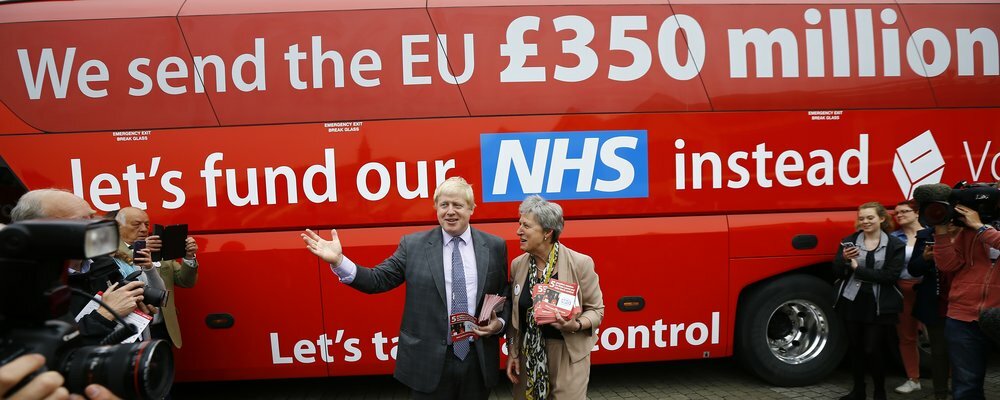Rugoz wrote:The EU as a whole would lose 17% of its exports, simple as that.
You are comparing 100% of UK trade (intra-, plus extra-EU trade) with less than 50% of trade for EU members (extra-EU trade only). Which means the real figure is less than 50% of your 17%. That gets us to the 8%, right in the middle of the 7 to 9% range, which I have shown above to be the real impact on EU members.
You try to fool people by using false data and cheap tricks together scathing language.
The structural problems of the EU have not been resolved.
During the debt crisis, I distinctly remember you boldly proclaimed that the need for structural reform “is the biggest lie of all.” And now, all of a sudden, the presumed lack of structural reform will damage EU growth.
For you, it is impossible to be consistent in that construct of lies you have built over the years with false data and exceptional rudeness. With your conjurer’s tricks and your ignorance of the real economy, you don’t fool anybody but yourself.
What’s more, the pre-referendum propaganda you are regurgitating has become meaningless post-referendum. Instead of repeating it, British Brexitters have become suspiciously quite on the topic because they realise that the lies don’t stand up to economic reality. To non-British residents, that doesn’t matter because others will have to bear the consequences. Just like others had to bear the consequences of the pseudo leftist rants you so boldly proclaimed during the debt crisis. The Swiss will always profit in times of crisis.
In conclusion, under WTO the UK will
- lose much of its goods trade mainly due to non-tariff barriers (rules of origin, additional costs and time for customs, etc, will damage integrated supply chains using just-in-time no-stock, deviating standards, etc.)
- lose most of its trade in services (digital economy, finances, etc.; nearly 80% of UK economy is services)
- suffer job losses due to manufacturing, finances, farming, etc. leaving the UK
- suffer higher inflation and stagnating buying power due to fall in pound
- suffer further job losses due to opening of markets to non-EU economies
- suffer due to low productivity
- suffer lower growth due to less inward investment
Compared to this, the EU will only suffer a slight drop in trade compensated by increased growth and UK based-companies and services moving to the single market. Flows of investment going to the single market instead of the UK will also boost economic growth. Any potential reduction of the trade surplus will be an added benefit.
The only way of avoiding this is by staying in the regulatory framework of the EU, without having a say in it. Complex mixed trade agreements including services require the same amount of regulation. Moreover, at a time of populist pressure from protectionist, such as the Trumpists and Bexitters, popular opinion will make it virtually impossible to get such intrusive trade deals through 30 national and regional parliaments in Europe.
ingliz wrote:Mr Davies likely to be held in contempt of Parliament for refusing to hand over the 58 impact reports into the economic effect of brexit as promised, without "redaction or qualification", to the select committee.
The whole idea of Brexit was to "take back control" (from parliament).
Anyways, who needs expert opinions since Michel Gove has made it clear that experts are traitors.
The real patriots are Tory MP's like John Redwood who, having engineered Brexit, now advise investors to move their money out of Britain.
Brexit: Tory MP John Redwood tells foreign investors to withdraw money from UKJohnRawls wrote:Why do you need to redact them? Isn't the whole point of the reports to be transparent and provide a guideline for the policy makers? How can policy makers decide what to do if most of them will see only a redacted version 
The government knows best what's good for the nation. The people must not be exposed to the awkward facts.



















 - By Verv
- By Verv - By Pants-of-dog
- By Pants-of-dog